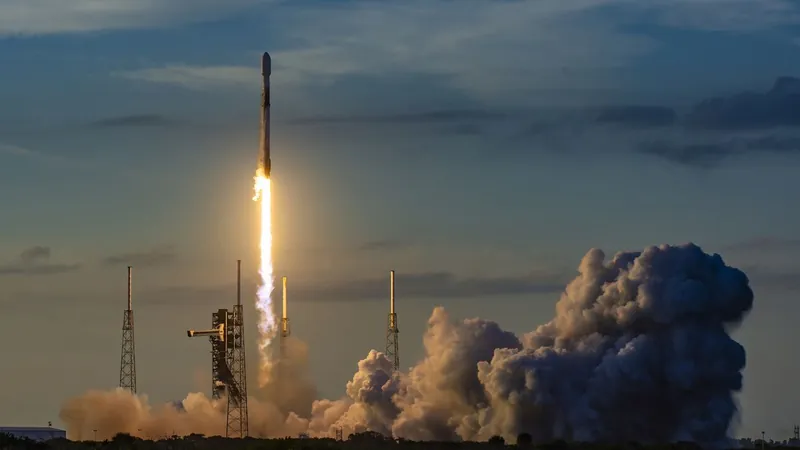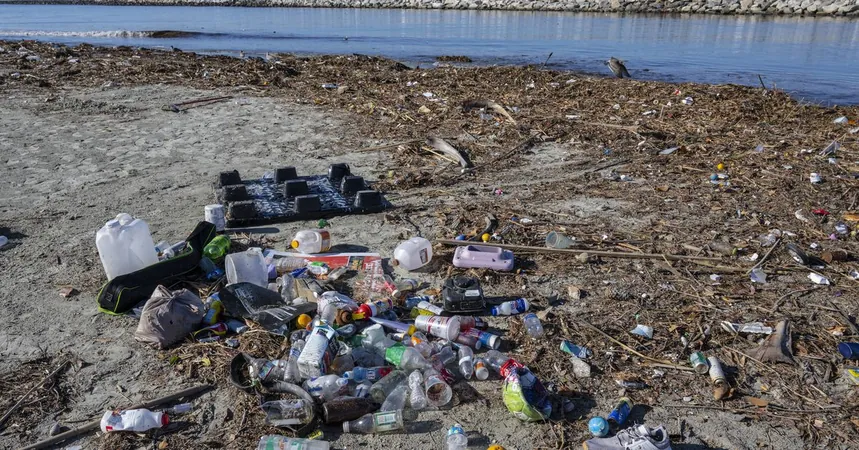
SpaceX Challenges FAA Fines in Bold Congressional Letter – Is This a Turning Point for the Space Industry?
2024-09-19
Introduction
In a dramatic escalation of its ongoing conflict with the U.S. Federal Aviation Administration (FAA), SpaceX has taken its case to Congress. On September 17, the FAA announced plans to impose a hefty fine of $630,000 on the aerospace giant, accusing it of breaching regulatory protocols during two critical launches last year. This announcement ignited a swift and fierce response from SpaceX CEO Elon Musk, who declared the company’s intention to legally challenge the FAA, framing it as an issue of “regulatory overreach.”
Details of the FAA Fine
In a letter sent to key congressional committees, SpaceX contests the FAA's proposed fine and criticizes the agency for its sluggish pace in addressing industry needs. The controversial launches in question involved the PSN SATRIA satellite, launched on June 18, 2023, and the EchoStar XXIV/Jupiter 3 mission, which took off on July 28, both from Florida's Space Coast.
Alleged Infractions
The FAA's objections are centered around two alleged infractions during these launches. The first involves the PSN SATRIA mission, where SpaceX reportedly used a new launch control room and bypassed a standard readiness poll that is typically conducted two hours prior to takeoff—without obtaining the necessary pre-launch approvals. The second infraction pertains to the use of an unapproved rocket propellant farm for the EchoStar mission.
SpaceX's Rebuttal
SpaceX’s rebuttal highlights what it perceives as misunderstandings about the regulations. For instance, it argues that there is no explicit requirement to conduct the readiness poll two hours before launch, insisting that its own safety practices are sound and compliant. In the letter, SpaceX emphasizes that they conduct readiness checks prior to propellant loading, a practice it believes aligns with safe operational standards.
Regulatory Contradictions?
Moreover, SpaceX underscores a waiver granted by the FAA on August 20, 2023, which permitted the use of the propellant farm for a subsequent Crew-7 mission, suggesting a contradiction in the FAA's safety assessments between the two launches. The letter states, “It’s not clear why the FAA made a positive safety determination for the Crew-7 launch but not for the EchoStar XXIV/Jupiter 3 mission,” raising questions about the consistency of the FAA’s regulatory practices.
Broader Implications
Beyond the immediate concerns over these two launches, SpaceX’s letter articulates broader frustrations with the FAA's regulatory framework, which SpaceX argues is hampering the American space launch sector’s growth and innovation. This sentiment is particularly acute as SpaceX continues to develop its monumental Starship rocket, intended for missions to the Moon and Mars. The company contends that it has been poised for Starship’s fifth test flight since early August, yet the FAA has indicated that approval may not be granted until late November.
Conclusion
The implications of this dispute extend beyond SpaceX alone, as it could influence how the entire commercial space industry navigates regulatory challenges, potentially reshaping the dynamics of innovation in space exploration. With industry leaders calling for swifter regulatory processes to keep pace with technological advancements, the outcome of SpaceX’s appeal could set crucial precedents for future space missions.
As the drama unfolds, one thing is clear: SpaceX’s battle with the FAA is not just about fines and regulations—it’s about the future of commercial space travel and American leadership in the new space age. Will Congress take action to pave the way for a more agile regulatory framework? Stay tuned, as this high-stakes showdown evolves!



 Brasil (PT)
Brasil (PT)
 Canada (EN)
Canada (EN)
 Chile (ES)
Chile (ES)
 España (ES)
España (ES)
 France (FR)
France (FR)
 Hong Kong (EN)
Hong Kong (EN)
 Italia (IT)
Italia (IT)
 日本 (JA)
日本 (JA)
 Magyarország (HU)
Magyarország (HU)
 Norge (NO)
Norge (NO)
 Polska (PL)
Polska (PL)
 Schweiz (DE)
Schweiz (DE)
 Singapore (EN)
Singapore (EN)
 Sverige (SV)
Sverige (SV)
 Suomi (FI)
Suomi (FI)
 Türkiye (TR)
Türkiye (TR)